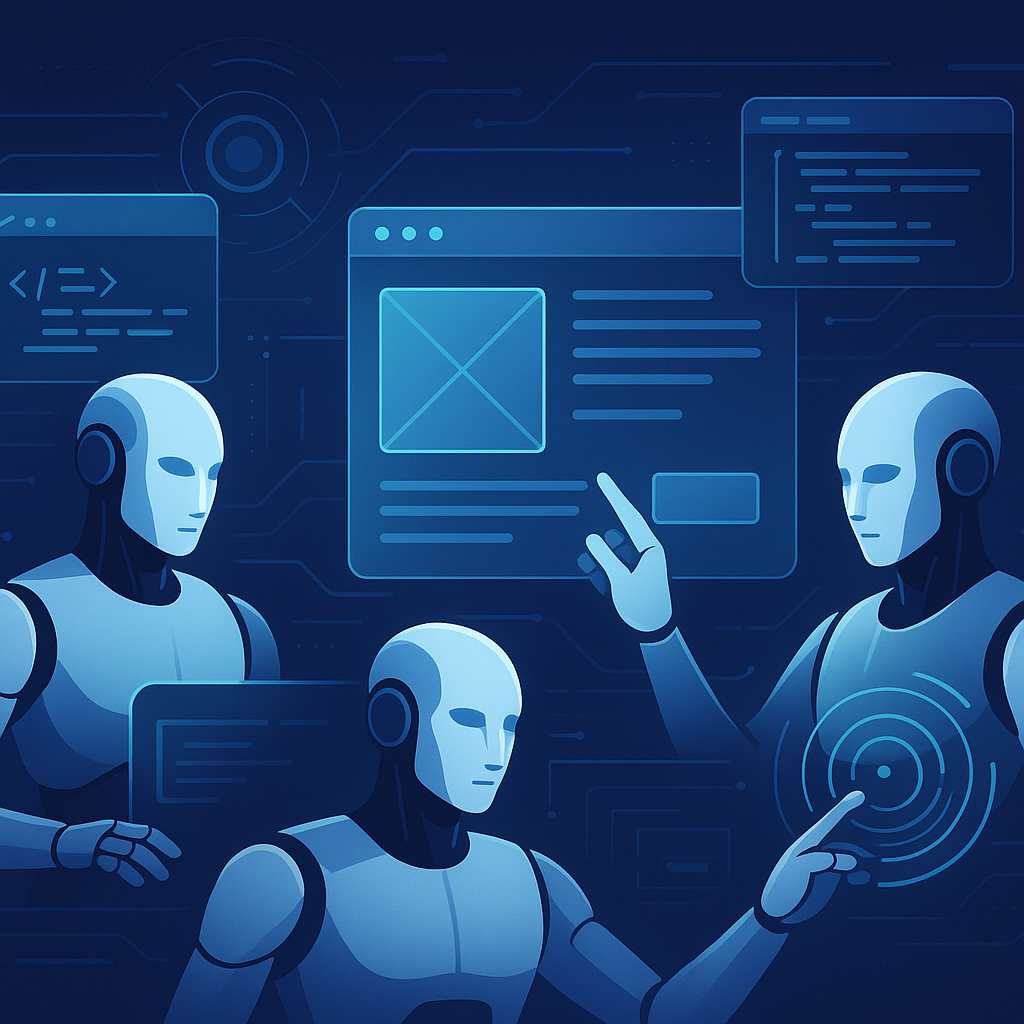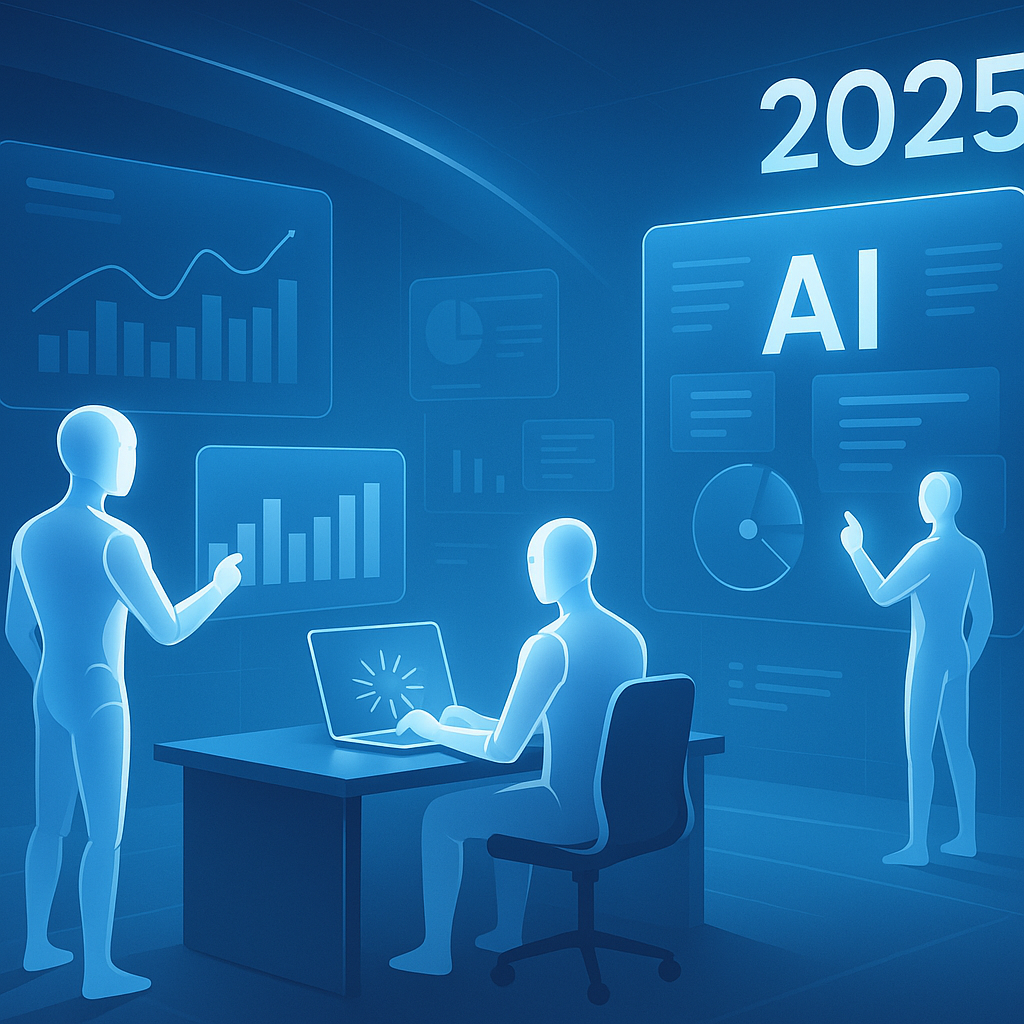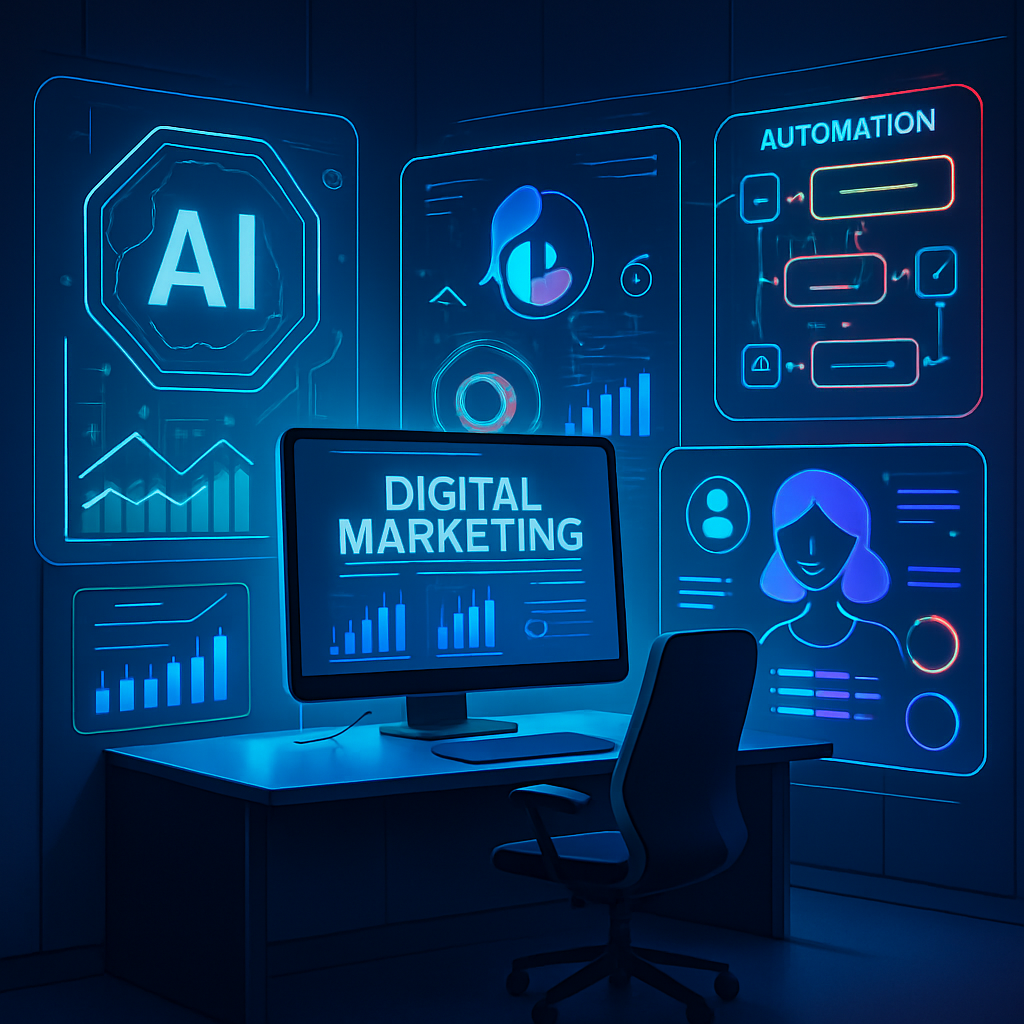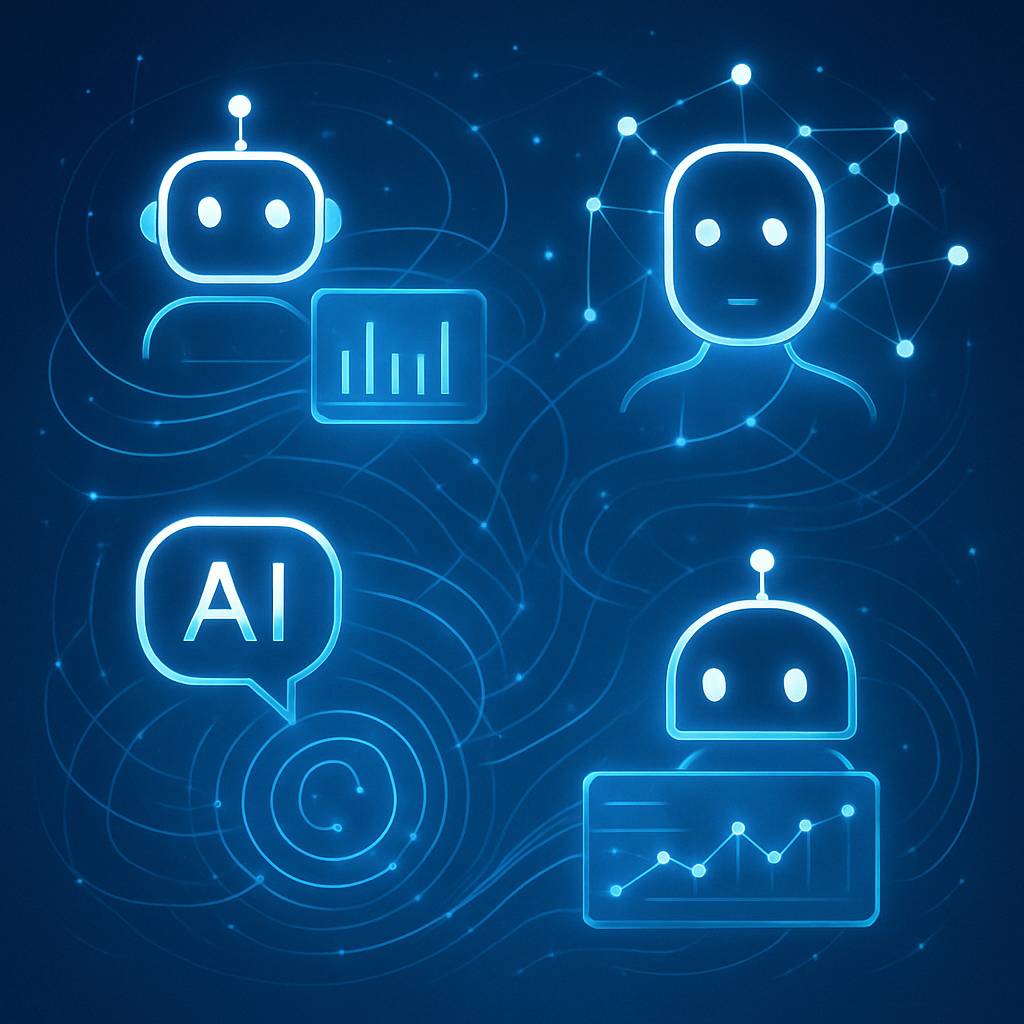
Harnessing AI Agents in Website Development: Use Cases & Examples
Introduction to ai agents in Website Development
In 2025, website development continues its rapid evolution, driven by the intelligent automation and cognitive capabilities of artificial intelligence (AI) agents. These autonomous or semi-autonomous AI systems can perform tasks typically requiring human intelligence, ranging from content creation to user interaction management. Harnessing AI agents in website development not only accelerates workflows but also enriches user experiences through smart personalization and responsiveness.
This article explores innovative use cases for AI agents in website development, highlighting compelling real-world examples that demonstrate how AI is reshaping the digital landscape.
What Are AI Agents?
AI agents are software entities capable of perceiving their environment, reasoning, learning, and taking actions autonomously or semi-autonomously to achieve specific objectives. Within website development, AI agents might automate coding tasks, manage content dynamically, or interact with visitors in real time. They often leverage machine learning, natural language processing (NLP), and computer vision to perform sophisticated functions.
Innovative Use Cases of AI Agents in Website Development
1. Automated Front-End Coding and Testing Agents
AI agents now assist developers by generating optimized HTML, CSS, and JavaScript code based on design input, drastically reducing development time. For example, AI-driven tools like CodeCraft AI analyze wireframes or sketches and produce responsive layouts automatically. Furthermore, AI testing agents continuously run compatibility and performance checks across devices, automatically identifying and reporting issues.
2. Dynamic Content Generation and Personalization
Modern websites often offer personalized experiences. AI agents analyze user behavior, preferences, and interaction patterns to customize displayed content instantly. For instance, eCommerce platforms deploy AI content agents that recommend products, tailor promotional banners, or adjust navigation menus uniquely for each visitor, elevating engagement and conversion rates.
3. Conversational AI and Virtual Assistants Embedded in Sites
AI chat agents integrated directly on websites provide interactive customer support, answer queries, and guide users through complex processes without human intervention. These intelligent assistants leverage NLP to understand intent and context, creating seamless, conversational interactions that reduce bounce rates and improve satisfaction.
4. Intelligent SEO Optimization Agents
Search Engine Optimization (SEO) benefits immensely from AI agents that continuously analyze site structure, keywords, and competitor strategies. They suggest or automatically implement on-page optimizations, semantic improvements, and meta tag updates to maintain high search ranking positions in a competitive landscape.
5. Security Monitoring and Threat Detection
AI security agents monitor website traffic and user activity patterns in real time, identifying anomalies or potential cyber threats like SQL injections or DDoS attacks. By autonomously responding to suspicious behavior, these agents enhance overall website security without continuous human oversight.
Real-World Examples of AI Agents in Action
Example 1: Wix ADI — AI-Powered Website Design
Wix's Artificial Design Intelligence (ADI) is a prominent example where an AI agent creates fully functional websites by asking users a few simple questions. Using AI algorithms, Wix ADI generates custom layouts, designs, and content structures tailored to the user's business sector and preferences—streamlining website creation for non-technical users.
Example 2: The Grid — Autonomous Web Design Agent
The Grid leveraged AI agents to autonomously design and adapt web layouts in real time based on user content. Its agents evaluate color schemes, image placement, and typography to craft aesthetically pleasing, responsive websites without manual coding—a notable leap in AI-driven design creativity.
Example 3: ChatGPT-Powered Website Assistants
Integrations of advanced language models like OpenAI's GPT series serve as conversational agents embedded in websites, capable of engaging visitors, answering complex questions, and automating lead generation tasks. These AI agents enable more natural, intuitive interaction directly through a website interface.
Example 4: Automated Accessibility Compliance Agents
Tools like axe Accessibility Scanner employ AI agents that automatically scan websites for accessibility issues, generating actionable reports and even suggesting fixes. This use case highlights AI’s role in ensuring inclusive design, meeting legal standards, and enhancing usability for all users.
Future Horizons: Emerging AI Agent Trends in Website Development
Looking ahead, AI agents are expected to become even more integrated into website development pipelines. Some evolving trends include:
- AI-Generated Multimedia: Agents capable of creating adaptive images, videos, and animations tailored to user context.
- Predictive User Experience: AI anticipates user needs proactively, adjusting site behavior before interaction.
- Decentralized AI Agents: Autonomous agents operating across distributed networks, enhancing scalability and privacy.
- Ethical AI Agents: Focused on fair, transparent, and accountable AI use in web technologies.
Conclusion
Artificial intelligence agents are no longer futuristic concepts; they are pivotal tools reshaping website development by augmenting creativity, automating complex processes, and personalizing user experiences at scale. From AI-driven design assistants to intelligent chatbots and security monitors, examples of AI agents demonstrate the growing symbiosis between human creativity and machine intelligence in crafting modern websites.
As 2025 progresses, the integration of AI agents will deepen, unlocking innovative possibilities that challenge traditional development paradigms and set fresh standards for what websites can accomplish.







